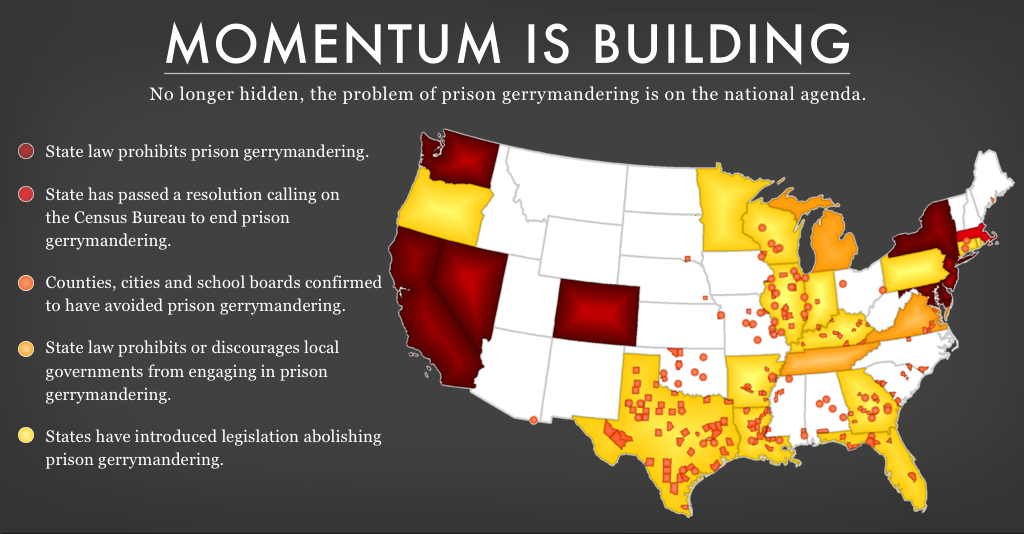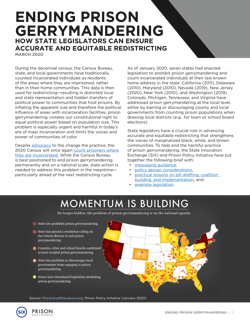Colorado Governor Jared Polis signs law ending prison gerrymandering
Colorado moved swiftly, ending prison gerrymandering in a single legislative session.
March 23, 2020
For immediate release — Last Friday (March 20, 2020), Colorado Governor Jared Polis signed a bill into law ensuring that people in state prisons will be counted as residents of their home addresses when new legislative districts are drawn. The new law makes Colorado the eighth state to end the practice known as prison gerrymandering, after New Jersey passed its own law earlier this year.
The Colorado Constitution states that, for the purposes of voting, people in prison remain residents of their hometowns. However, the Census Bureau counts incarcerated people as residents of the places where they are incarcerated.
As a result, when Colorado used Census counts to draw past legislative districts, it unintentionally enhanced the representation of people living in districts containing prisons. The result of this distortion was dramatic: In three state legislative districts, people in prison accounted for 12%, 8%, and 5% of the district’s population. Each of these districts, therefore, had far fewer actual district residents than any other district in the state.
“Colorado’s new law recognizes that ending prison gerrymandering is an important issue of fairness,” said Aleks Kajstura, Legal Director of the Prison Policy Initiative. “All districts — some far more than others — send people to prison, but only some districts contain prisons. Counting incarcerated people as residents of the prison gives extra representation to the prison district, dilutes the votes of everyone who does not live next to the state’s largest prison, and distorts the constitutional principle of one person, one vote. This new law offers Colorado voters a fairer data set on which future districts will be drawn.”

“More accurate district maps, a fairer count of Coloradans, and better population data means a stronger democracy,” sponsors Kerry Tipper and James Coleman argued in The Denver Post last month. “This bill will make a difference for everyone who wants to ensure their districts have the most accurate representation possible.”
The legislation, passed as HB 20-1010, applies only to redistricting and will not affect federal or state funding distributions.
Over 10 other states introduced legislation to end prison gerrymandering in the current session. “We applaud Colorado for enacting common-sense solutions in a single legislative session, and other states currently considering similar bills should follow its example,” Kajstura said.




